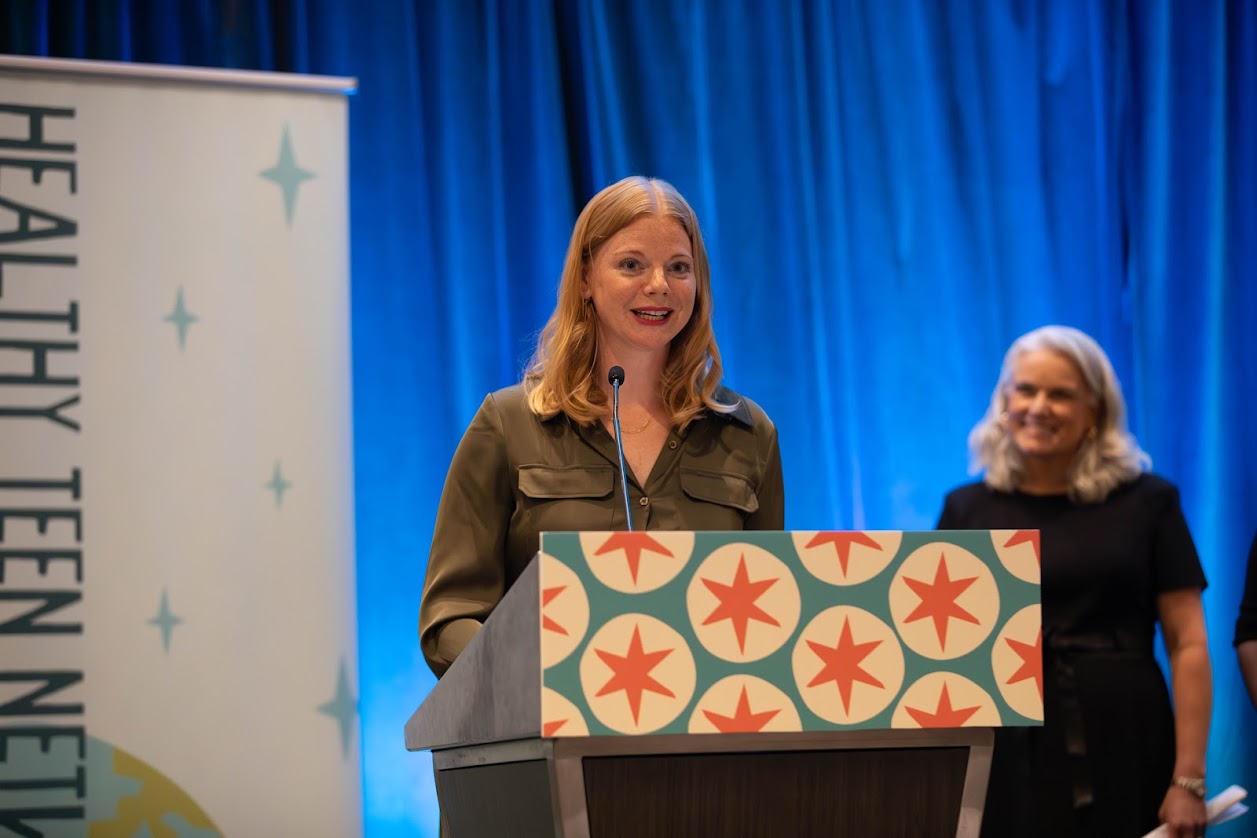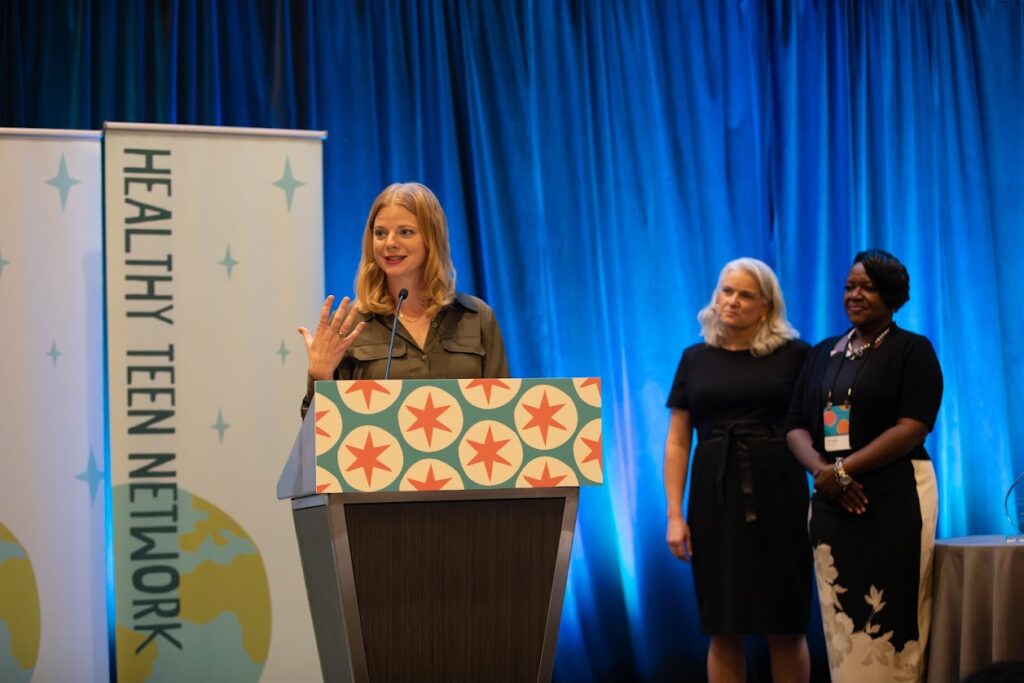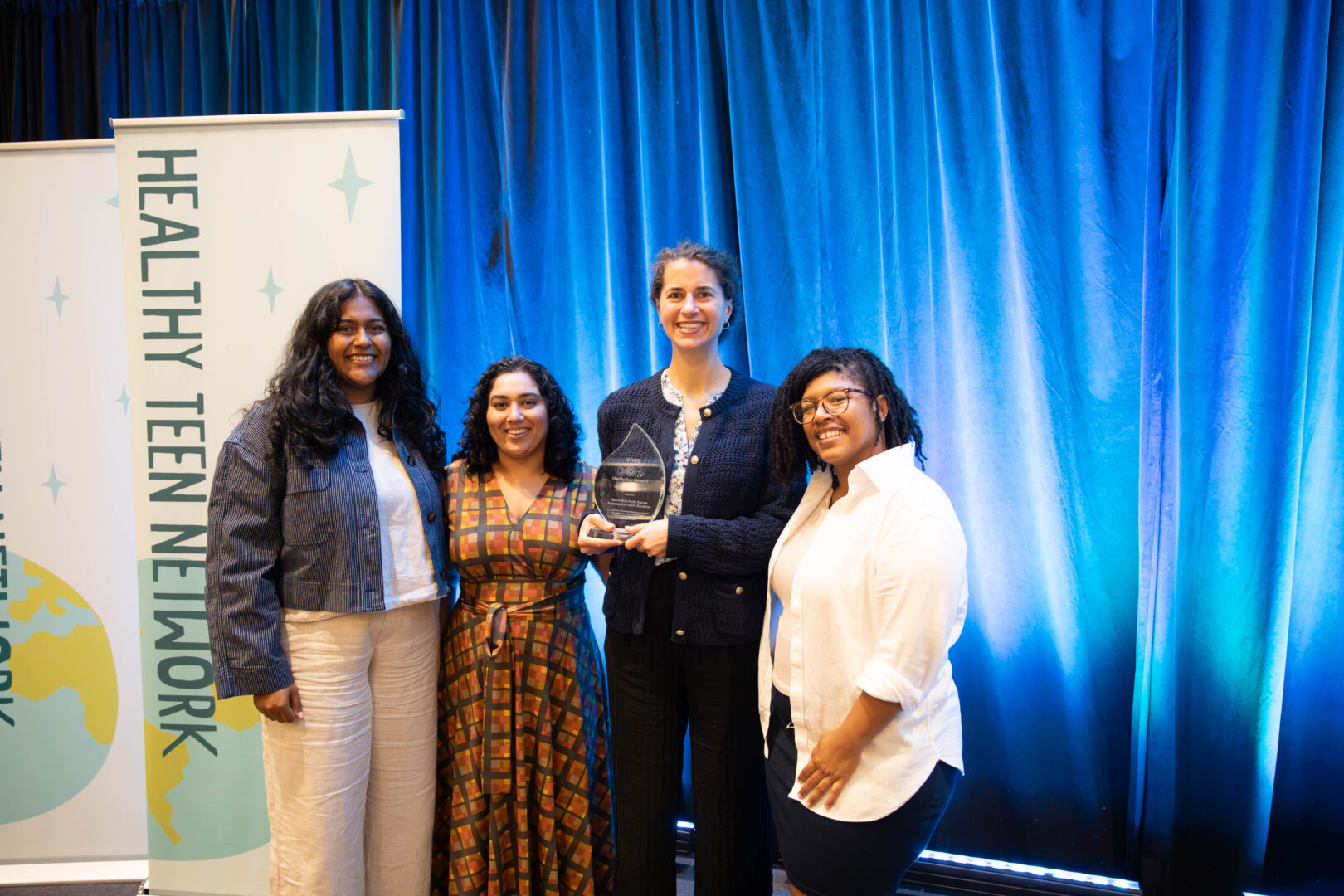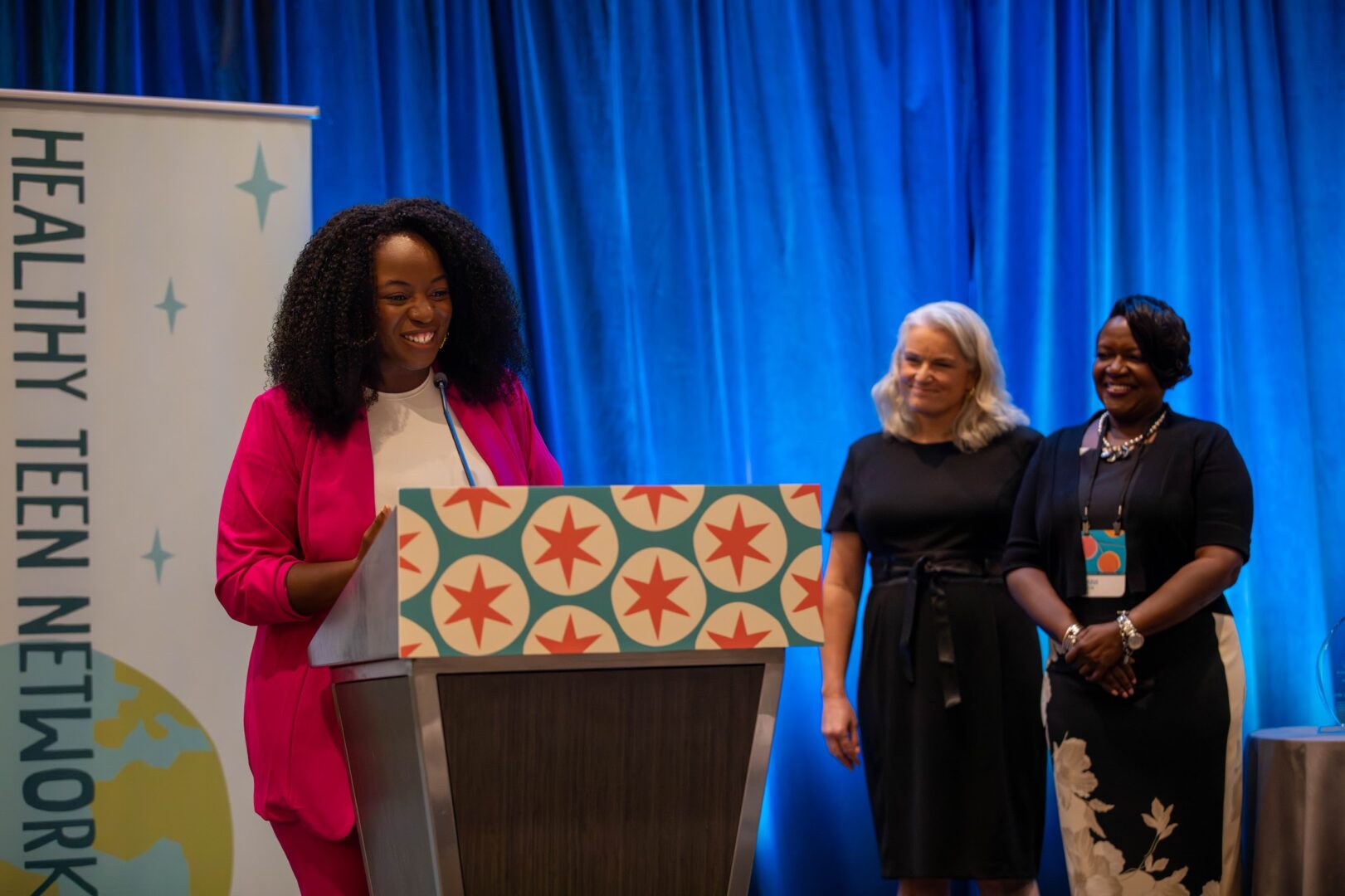From day one, when Healthy Teen Network was founded in 1979 as the National Organization for Adolescent Pregnancy and Parenting (NOAPP), we have not only affirmed but often been one of the few national organizations working to ensure young families’ access to the supports and services they need to thrive. We do this because being inclusive of and affirming young people who are pregnant or parenting ensures equity for all youth.
With the Healthy Teen Network Young Parent Achievement Award, we recognize someone who has met the challenges of early parenting, has achieved extraordinary personal and/or professional success, and demonstrates phenomenal leadership.
The Healthy Teen Network Young Parent Achievement Award not only recognizes young parents—it celebrates them and their accomplishments, for themselves and their families.
Last month, at the Healthy Teen Network annual conference in Atlanta, we presented Kate Westaby, PhD, with the 2025 Young Parent Achievement Award. Kate shared more about her achievements in her acceptance speech:
My 21-year-old son is a baseball player and gets to choose walk-up songs. I was so excited that I got to choose one too, though I decided to pass on his suggestions. They were a bit more explicit than I was aiming for with this crowd. Instead, I chose a song about dancing through the lightning strikes, which felt fitting, because that’s exactly what so many young parents do.
And my 21-year-old son is the reason I became a young parent and am standing in front of you today.
I still vividly remember that life-changing moment when I was 16 and found out I was pregnant. I was in a small-town clinic in central Wisconsin—a town with no stoplights. I’d gone in because I was feeling sick, not knowing it was morning sickness. Then the nurse came in and said, “You’re pregnant.”
I remember the blood rushing to my face, my heart pounding, and thinking: “My life is over.”
I’ve interrogated that phrase in my research with other young parents—people who have a child before age 25. Why do so many of us often think “my life is over” when we find out we’re pregnant or going to have a child? What makes us believe pregnancy at a young age is untethered from our dreams and goals? Why is this the understanding so many of us carry?
Young parents are not an exception. We are everywhere, even if systems and narratives act like we’re invisible.
It’s important to pause here and recognize, this is not a rare story. More than one in five birthing persons will become a parent by age 25. Many of us are sitting in classrooms, working jobs, trying to finish school, and raising children at the same time. Young parents are not an exception. We are everywhere, even if systems and narratives act like we’re invisible.
And I wouldn’t be standing here, receiving this achievement award, if my life had truly been over. And I want to pause here to thank Healthy Teen Network for even creating this award because it highlights exactly what I’m talking about: Our goals are possible, even if the odds are often stacked against us.
It’s my hypothesis that this collective understanding—“my life is over”—is rooted in stigma. It’s internalized by young parents, has been a narrative in the pro-abortion movement, and is reinforced by systemic disinvestment.
I know this stigma deeply. In high school, other students put up posters sharing that less than 2% of teen parents get a college degree by age 30. I was so worried this was predictive and deterministic for my future. And I’m standing here telling you it’s not pregnancy that is limiting; it was the way society treated me because of it. That shame is not inevitable. It is constructed. And it is something we can dismantle.
In my research, I uncovered that many young parents were told some version of, “Well, you chose to have this child, so figure it out.” This illustrates the punishment young parents experience.
So I ask: How do we move toward a more balanced reproductive justice landscape for young people who become pregnant— where it’s not only “you have the right to not have a child,” but also “you have the right to have a child?” Where that right is not punished or leads to disinvestment.
We need systems that invest in us, not abandon us.
This balance is essential for young parents to feel supported—to feel that our dreams remain possible. Because while research shows young parenting can increase motivation, it often decreases expectations of actually achieving our dreams. We need systems that invest in us, not abandon us.
One way I’ve started this investment is by founding the Young Parent Collective (YPC).
YPC was born when young moms who helped interpret my research said, “We need to do something about this.” We need to address why 42% fewer young parents are enrolled in college a few years after high school. We need to address why almost half of young parents experience dropping out of high school. It’s not because young parents don’t want these achievements.
In just its first couple of years, YPC has provided paid skill-building opportunities to more than 20 young parents across the U.S.—in research, advocacy, and leadership. The vast majority of our funding supports young parents in these positions. We launched the YPC Research and Evaluation Lab just this year, where young parents earn certificates and are now evaluating our local WIC program. We also conduct trainings about the history of young parenting narratives. Shameless plug for our roundtable on Wednesday.
Perhaps most importantly, YPC creates shared spaces where we process the shame and judgment from stigma. YPC creates space for healing.
Please sign up for our newsletter, donate on our website, follow us on Instagram and Facebook, and collaborate with us.
Because here’s the truth:
- Pregnancy at a young age does not cause educational dropout.
- Pregnancy at a young age does not cause isolation.
- Pregnancy at a young age does not cause poverty.
Things that do cause educational dropout, poverty, and isolation:
- A society and policies that punish young parents.
- And systems that disinvest in young parents.
Thank you again for this incredible honor. I deeply appreciate getting to know the Healthy Teen Network team and feel so fortunate to learn from your profound insights and to collaborate toward a shared vision of reproductive justice. I also want to thank the young mothers who inspire me every day and continue to build YPC and expand our impact—including Kiria, here in the audience, who is co-presenting with me this week. And to my family, especially my partner, whose support made it possible to launch this organization. And my boys, whose love has taught me the true power and purpose of parenting—thank you.
This award is not just a recognition of my work, but of what’s possible when young parents are seen, supported, and invested in.
PHOTOS BY: GINA DESIDERIO
Dr. Kate Westaby is the founding director of the Young Parent Collective (YPC) and a researcher at the Urban Institute. Her journey began at age 17, when she became a parent while navigating high school and college. As a first-generation college student and young parent, Kate experienced the challenges of balancing education, childcare, and public systems—experiences that fueled her lifelong commitment to advocacy. Read more about Dr. Kate Westaby.









